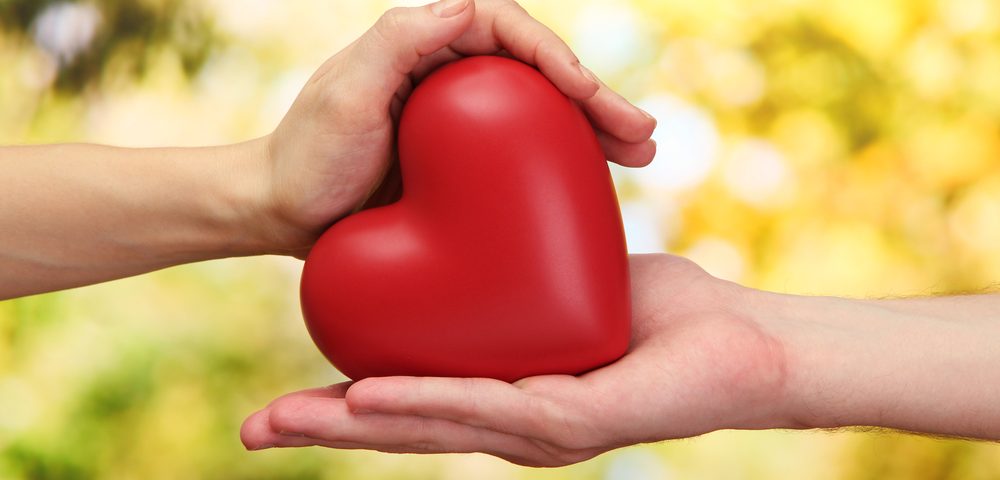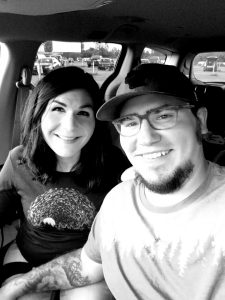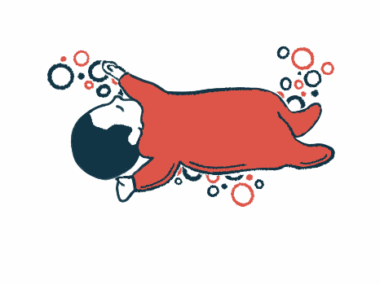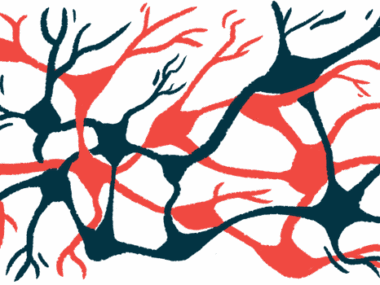14 Trips Around the Sun
Written by |

Have I ever told you that my significant other, Andy, has Becker muscular dystrophy (BMD)? Or that we met as kids at MDA Summer Camp?
We did, indeed. Our hometowns sat about a two-hour drive apart. We stayed connected and remained friends throughout our teenage years but never dated until after high school. Andy’s form of BMD has been mild so far, which has allowed him to remain quite physically functional. He struggles with certain movements and motions, but he knows his limits and manages it well.
I’ve had interesting conversations with Andy about growing up with BMD and the complex emotions involved in identifying as “disabled” because of his level of mobility. He acknowledges that accommodations and accessibility are extremely important to his life now, and may become increasingly important to him later.
So, I’m not sure what you would call our relationship. Is it an interabled relationship? Is it an interdisabled relationship? I don’t know. My free-spirited soul doesn’t own a label-making machine for home organization, and I’m certainly not one for excessive labeling of roles within my life. If it’s beautiful, I am grateful for it. I accept it and try not to get caught up in so many questions.
Here’s what I am willing to call it: an amazing love story. Yes, that’ll do. That’s what we have written together.
Like any great story, it hasn’t been all rainbows and unicorns. We’ve had to weather many ominous storms. And, there’s an interesting twist: Andy has been my primary caregiver for 14 years now. Those 14 trips around the sun chronicle many captivating chapters together.
In light of Disability Pride Month, I’ve been thinking about this road we’ve traveled. I recently wrote a post on social media for my modest bubble of friends and followers.
In it, I explain how involved my daily cares truly are. There’s a good bit about wiping butts (which I’ve become more comfortable talking about, thanks to the wonderful Kevin Schaefer, master of butt-wipe discussions). I write about how Andy performs my cares but keeps his identity separate from mine, engaging in his own career, hobbies, and talents.
I mention that Andy has achieved an incredible 35-pound weight loss since February. In recently talking about his awesome triumph, he unveiled some of his motivations to me. One prominent motivation is that he feels the need to be healthy and fit — not only to hopefully slow the impact of his Becker MD, but so he can help with my caregiving for as long as possible. When I think about the lack of existing caregiving resources, I feel saddened and fearful. Andy is an incredible caregiver, but we both know that role will likely fade. To think of it hurts my heart.
Situations like this are grievously attached to deeper issues within our society, tied to barriers and challenges that chip away at quality of life.
People with caregiving needs should have more choices in crafting a unique caregiving team that best fits their life. For many, that would probably involve an eclectic mix of family, friends, personal care attendants, and other healthcare professionals such as CNAs or RNs. Growth of resources is necessary to ease the looming fear of long-term facility care that people with disabilities sometimes feel. Great amounts of pressure are placed upon those who need caregiving in order to survive each day.
I’m trying to speak out more often for choice, independence, empowerment, and empathy. Empowerment helps people to discover what works best for their life. When that happens, people thrive.
When I think back to the budding years of our story together, I am in awe of how it all unraveled. I never thought I would allow caregiving and intimacy to mingle. Striving for a sense of normalcy as a young couple was futile until we decided together: Normalcy doesn’t actually exist.
I’m not interested in being an inspirational poster couple for interabled or interdisabled relationships. What I do want is to inspire change for the better. I don’t want to live in a society that views my life as the exception, and doesn’t bother to improve resources and possibilities for all.
I’m fortunate to live in the pages of this love story. But there are many beautiful love stories out there, and those involving people with disabilities shouldn’t be perpetuated as rare because it undermines the possibility of what can be. The truth is that we are worthy of a magical life filled with love and wonder and depth and pride.
***
Note: SMA News Today is strictly a news and information website about the disease. It does not provide medical advice, diagnosis, or treatment. This content is not intended to be a substitute for professional medical advice, diagnosis, or treatment. Always seek the advice of your physician or other qualified health provider with any questions you may have regarding a medical condition. Never disregard professional medical advice or delay in seeking it because of something you have read on this website. The opinions expressed in this column are not those of SMA News Today, or its parent company, Bionews Services, and are intended to spark discussion about issues pertaining to spinal muscular atrophy.








Leave a comment
Fill in the required fields to post. Your email address will not be published.